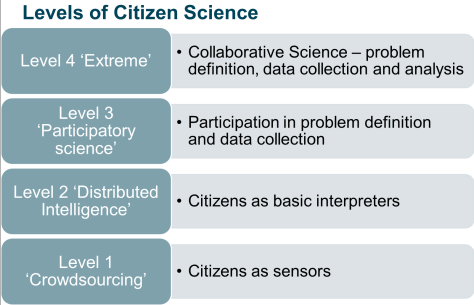The role of no-scientist people in science is being more and more common nowadays. Citizen science allows you to participate in so many scientific projects despite not being a professional. In this post, we will explain what is citizen science and a marine project in Spain.
WHAT IS CITIZEN SCIENCE?
Citizen Science is a new scientific culture. According to the Green Paper on Citizen Science, it consists on the engagement of general public in scientific research activities to answer real-world questions either with their intellectual effort or with their resources and tools.
In their voluntary involvement, participants get new learning and skills. Not only do participants provide researchers with experimental data and facilities, but also do they suggest new questions to be answered .
Citizen Science provides some benefits:
- Brings results that are difficult to achieve in other ways.
- The data gathering is much bigger.
- The collection and analysis is more homogeneous.
- Stimulates the participation and increase the interest of general public in science.
The fields with more projects are ecology, medicine, astronomy, psychology and genetics, among others.
HOW CAN YOU PARTICIPATE?
Participating in a citizen science project is easy. There are plenty of them, so it is easy to find some of your interest.
Depending on the project, voluntaries can participate in different ways:
- Putting resources.
- Collecting and analysing experimental data.
- Participating in experimental games to analyse human behaviour, in physical spaces or in collective intelligence experiments.

THE ORIGINS OF CITIZEN SCIENCE
Citizen Science is nothing new. In fact, the curiosity and interest of people were the engine of science until 19th century. To give an example, amateur astronomers contributed in the discovery of so many stars and celestial bodies.
In the 1980s, the concept was used for the first time in the Cornell’s Laboratory of Ornithology. However, it has been in the last 5 years that this concept has been more used.
MARINE CITIZEN SCIENCE IN SPAIN: SEAWATCHERS
Seawatchers is a project of the Institut de Ciències del Mar (Institute of Marine Sciences, Barcelona) for those professional and amateur people who love the sea, dive, sail or practice water sports; with the general goal of understanding the current state of our seas and oceans.

In concrete, the purpose of this project is to understand the effects of global warming, pollution, biodiversity changes, invasions of alien species and overfishing in marine ecosystems.
To achieve this goal, Seawatchers offer 9 projects:
- Warning corals: If you dive, you can contribute in this project by informing about geographic location and depth of coral species in the Mediterranean and their conservation status, such as the emblematic and endemic red coral (Corallium rubrum). Nowadays, this project has more than 270 records. Do you want to contribute too?
- Invasive fishes: With the goal of providing an early detection of marine invasive species, you can be helpful in this project by reporting the presence of 10 alien species in the Mediterranean sea. You will have to provide information on abundance, size, depth, location and the species. An example of this exotic species is the silverstripe blaasop (Lagocephalus sceleratus). However, if you consider some new invaders, you can provide a picture to check it. Help scientist protect our seas by informing of these alien species!
- Jellyfish alert: Do you want to help oceanographers with the monitoring of the impacts of these primitive living animals and their effects in coastal areas? You can contribute in this project reporting the presence of jellyfishes in the beaches. Read our guide to recognise some of them!
- Decapod crustaceans: With more than 950 records, this project expects to gather data on the occurrence of decapod crustaceans (such as crabs, shrimps, prawns…) in order to obtain distribution maps for each species. What can you do? Inform about the presence of different species during your shore walks and dives.
- Mediterranean fishes: This project hopes to discover the fish biodiversity of the Mediterranean Sea. It is interested in common species, indicators of climate change (for example Coris julis and Thalassoma pavo) and rare species. You can report your fish records of your divings and if you have noticed changes in their presence.
- Sea birds: If you are a bird lover, you can contribute in this project by reporting which species have you seen, when, where and how many individuals.
- Invasive flora: If you want to increase the number of records in this project, which hope to get information about distribution of marine invasive flora, the habitats where they are present and their interaction with other species, you just have to sign up in the Seawatchers website. You have to report date, site, depth and provide a picture.
- Plastic 0: As we explained in this article, the amount of plastic garbage in the ocean is huge. For this reason, you can share your plastic findings in this project: where you observed it and how did you found it. Nowadays, there are only 260 records. Help them!
- Sea bottom garbage: Do you want to help to discover the effects of marine debris on benthic ecosystems? Then, this is your project. Send information on debris that you find at the sea bottom (where and its type).
If you want to collaborate in this citizen science project, you can sign up here: SIGN UP. The best part is that you can contribute in any of these 9 projects. So, jump to the water and report your findings! If you want more information about this project, vist the website: Seawatchers.
Eugenio Fernández, owner of Blog Nasua, recommended us the platform Zooniverse, in which you can find so many citizen science projects. Find yours!
REFERENCES
- CCCBLab: Citizen Science, Knowledge takes power
- European Commission: Green Paper on Citizen Science
- Seawatchers
- SEO BirdLife: Ciencia Ciudadana
- Cover picture: Ocean Portal


